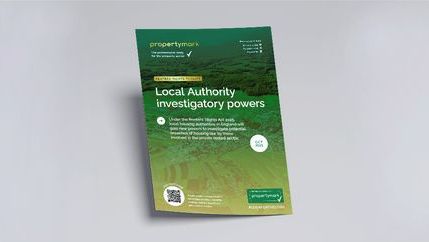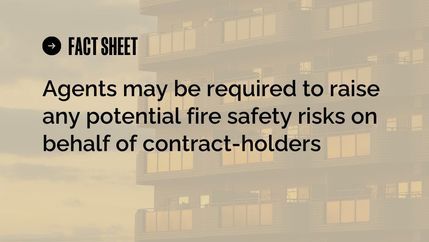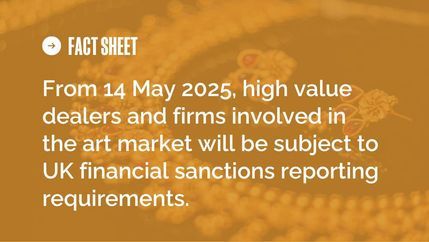Guide to Local Authority Investigatory Powers
From 27 December 2025, local housing authorities in England will have powers to investigate potential breaches of housing law by landlords, agents, and others involved in the private rented sector, allowing them to request information, seize documents, and enter business premises under certain circumstances.
Visitor levy rules to be amended before the first schemes begin
The Scottish Government has introduced legislation which will amend the Visitor Levy (Scotland) Act 2024, giving councils more flexibility in how they design and run local schemes. This sits alongside the existing timetable for visitor levies to start from spring/summer 2026, with Edinburgh already committed to introducing a 5% levy on overnight stays from 24 July 2026.
Further change for holiday lets with new licensing and standards
Rules for short-stay accommodation in Wales are becoming more complicated. New licensing standards, tax changes, planning rules and a visitor levy are all being introduced, creating major implications for agents and landlords. For property professionals, this brings both challenges and opportunities — the risk of higher costs, reputational damage, and penalties for non-compliance, but also the chance to stand out by offering well-managed, compliant accommodation that builds trust with guests and demonstrates higher standards.
First Renters’ Rights Act changes commence on 27 December 2025
The Act equips Local Housing Authorities (LHAs) with stronger rights to investigate whether a landlord or letting agent has breached certain housing laws – measures which apply to letting of private rented accommodation, and actions that may involve illegal eviction, poor standards, and non-compliance.
Agents must seize this moment to shine as Renters’ Rights Act clears parliament
The legislation gained Royal Assent on 27 October 2025. Implementation will be staged via secondary legislation, and the UK Government has stated it will allow time for a smooth transition and engage the sector on commencement dates. Propertymark has hit the ground running, with training, events, and downloadable resources to support the sector through the most significant transition in private renting for a generation.
New EPC rules: what will change for the property market
The Energy Performance of Buildings (Scotland) Regulations 2025 have now been published, which are seen as the vehicle for wider EPC reform. These regulations will include redesigned certificates, clearer metrics, and a five-year validity period, with the new regime coming in on 31 October 2026. The changes are to support the journey to net zero whilst improving the information that buyers, sellers, landlords, and tenants receive.
Councils to get clearer powers to tackle vacant and neglected buildings
The Northern Ireland Dilapidation Bill aims to modernise and consolidate the rules which equip local authorities to tackle run-down, dangerous, or dilapidated buildings and land. It creates a single toolkit to support earlier action to protect amenities, aid regeneration, and keep people safe. The overall direction of the legislation is sound, and Propertymark is engaging with Ministers and MLAs to make improvements so that it will work better in practice.
The Housing (Scotland) Bill has passed, but change is still some way off
The legislation completed Stage 3 in the Scottish Parliament on 30 September and gained Royal Assent on 6 November 2025. The Act provides a framework for rent control, fresh rights for tenants to keep pets, and stronger tools to prevent homelessness. However, most of the key measures require further consultation and regulations, meaning agents and landlords are unlikely to see rent controls in place until 2028.
‘Under-utilised’ compulsory purchase powers to get a modern revamp
The Scottish Government has set out plans to modernise the 200-year-old legislation that underpins Compulsory Purchase Orders, making them fairer, faster and simpler for public bodies to use, and easier for people affected to understand. By removing barriers to the use of these powers, MSPs hope they can be used more frequently to support the delivery of new homes, infrastructure, and regeneration projects. However, the scale of the reform needed means legislation is unlikely to be brought forward until after the next Scottish Parliament Election in 2026.
Fact Sheet: Building Safety (Wales) Bill
The Building Safety (Wales) Bill sets regulations for the occupation phase of buildings. Propertymark members managing and letting individual flats within these buildings should be mindful of any requirements for residents, so that any key documents for contract-holders can be provided.
Freeholder court case forces delay in leasehold law
The Leasehold and Freehold Reform Act 2024 (LAFRA) was fast tracked through Parliament in May 2024, ahead of the last UK general election, but not all sections of the legislation have yet been brought into force. The reforms affect approximately 4.5 million leasehold homes in England and Wales, but are now being challenged by freeholders, who claim the provisions infringe their human rights.
Preparing for rental reform: why prescribed information still counts
Propertymark works to ensure our members understand the full extent of their legal obligations, and for letting agents this includes tenancy deposit protection. The Siddeeq v Alaian court case highlighted concerns about how and when prescribed information must be served, and with the implementation of the Renters’ Rights Bill on the horizon, it’s a relevant reminder that agents must be precise and compliant when dealing with tenancy deposits in England and Wales.
FAQ: Digital Markets, Competition and Consumers Act 2024 (Commencement No. 2) Regulations 2025
The Digital Markets, Competition and Consumers Act (DMCC Act) was enacted on 24 May 2024 and provides regulation of competition in digital markets, amending the Competition Act 1998 and the Enterprise Act 2002 and encompassing the protection of consumer rights and other related rights.
Fact Sheet: UK Sanctions Reporting Obligations for High Value Dealers
Under the Sanctions and Anti-Money Laundering Act 2018, the UK Government introduced a new regime of issuing financial sanctions following the UK’s departure from the European Union. Under the Act, businesses specified in the Act have to report to Office of Financial Sanctions Implementation (OFSI) if they suspect they are engaging with a client who is under financial sanctions.
The CMA takes up the reins of consumer enforcement on 6 April, but what does it mean for property agents?
The Digital Markets, Competition and Consumers Act (DMCC), which passed into law on 24 May 2024, contains provisions to prohibit unfair commercial practices, replacing and updating the Consumer Protection from Unfair Trading Regulations 2008 (the 2008 regulations). The legislation hands direct enforcement powers to the Competition and Markets Authority (CMA), giving them the authority to act on breaches of consumer protection rules, including requirements for providing material information.
Warning over rent spikes in the vacuum between Cost of Living and Housing Bill
The Scottish Government is rolling the Housing (Scotland) Bill through the Scottish Parliament which will introduce new permanent rent control and adjudication regulations. However, between 31 March 2025 and the enactment of the Bill, there will be a period when rent assessments revert to pre-Cost of Living Act terms.















